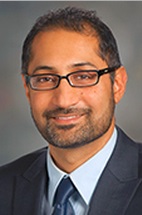When hepatitis C drugmakers started wooing payers with discounts, the cost cuts made the difference between an overwhelming burden and cost-effective spending. So say two new studies looking at the cost of treating the disease with a new generation of quite effective--but very expensive--treatments.
With a few caveats, however: If demand for the treatments escalates much, the financial strain could be painful.
One analysis diced up Gilead Sciences' ($GILD) 2014 pricing--$84,000 for a 12-week round of treatment with its Sovaldi--plus the cost of companion treatments such as Johnson & Johnson's ($JNJ) Olysio ($66,360 for 12 weeks) and the older med ribavirin.
Funded by the pharmacy benefits managers at CVS Health ($CVS), the study compared the new treatment combos against older, interferon-based treatments. And for patients with the most common strain of the virus--genotype 1--it found that the new meds cost as little as $12,825 for each year of healthy life gained over older meds. The best option, cost-wise, was Sovaldi plus ledipasvir, a combo now available in one pill, Gilead's Harvoni.
The comparisons aren't quite so favorable with other strains, with the cost of a "quality-adjusted life year" of $73,000 and up.
What's more, when the researchers looked at the drug cocktails' long-term benefits, such as preventing hospitalizations and liver transplants, the savings didn't outweigh the up-front costs. "These strategies do not seem to actually reduce overall spending," the study authors wrote.
Still, the authors pointed out, clinical treatment decisions aren't made on their ability to saving money down the road. And the $12,825 per QALY falls below some standard rules of thumb; Reuters quotes $50,000 as a common threshold.
Researchers from MD Anderson Cancer Center in Houston had some better news, mostly because they added an update to their research reflecting the latest discounts.
 |
| Jagpreet Chhatwal |
The MD Anderson team, led by Jagpreet Chhatwal, focused in on the Sovaldi-ledipasvir combo, a.k.a. Harvoni. Finalized before the discounts hit the news, their research showed that the cost of treating people with hep C with the new meds would put "a tremendous economic burden" on the U.S. healthcare system. The cost of treating patients with the new meds could hit $136 billion over 5 years, they calculated.
The budget needed to treat all diagnosed patients "is unsustainable," the researchers concluded. "We have millions of people who need treatment for hepatitis C and payers obviously don't have the budget to cover this tremendous expense," Chhatwal said in a statement.
But that was before payers--including the vocal PBM Express Scripts ($ESRX) and CVS Health--shook drugmakers down for discounts in return for exclusive or preferred placement on formularies. Comparing previous payer deals with the new round of discounts--estimated at 46%--the MD Anderson group figured with Chhatwal figured that spending would be $90 billion over 5 years. Including the $16 billion in cost savings that would come with curing so many patients, the new treatments would run $20 billion more than the cost of the older meds.
Before the new round of discounts, the additional cost would have been $65 billion, the researchers said.
That's a big difference. But still, the problem of unsustainable drug pricing is real, Chhatwal said in the statement. The U.S. system--which doesn't allow cost to enter into drug approval decisions, and which legally prohibits Medicare from negotiating drug pricing--is hamstrung when it comes to controlling drug spending. That applies to hep C and elsewhere, though hep C is a particular case, because of the number of patients infected with the virus.
"While lower drug prices will help, that's not sufficient," Chhatwal said. "Both the government and private insurers will need additional resources to effectively manage this epidemic."
- read the MD Anderson statement
- get more from MedPage Today
Special Reports: The new drug approvals of 2014 - Harvoni - Viekira Pak | The most influential people in biopharma today - 2014 - Steve Miller - Express Scripts